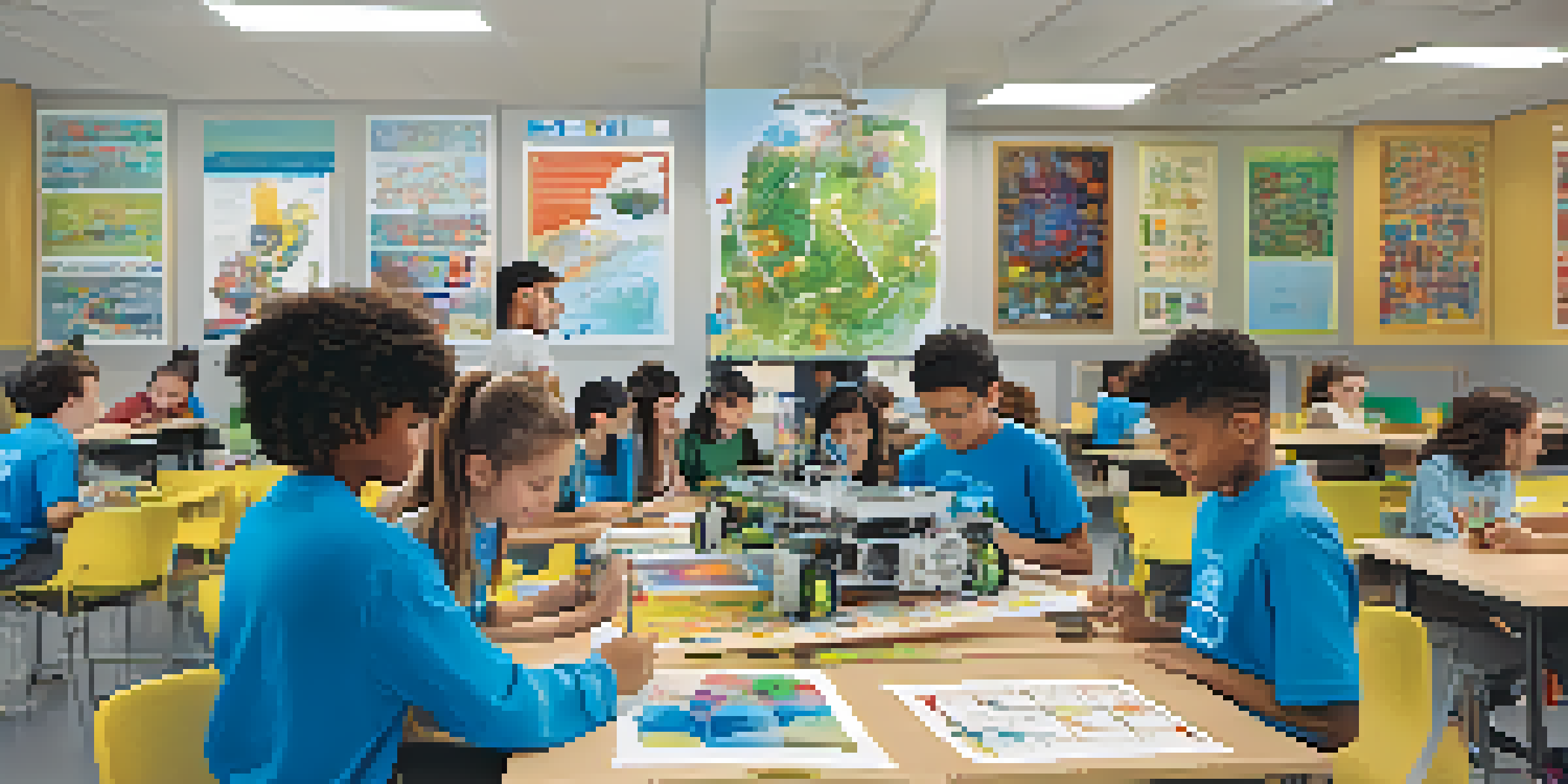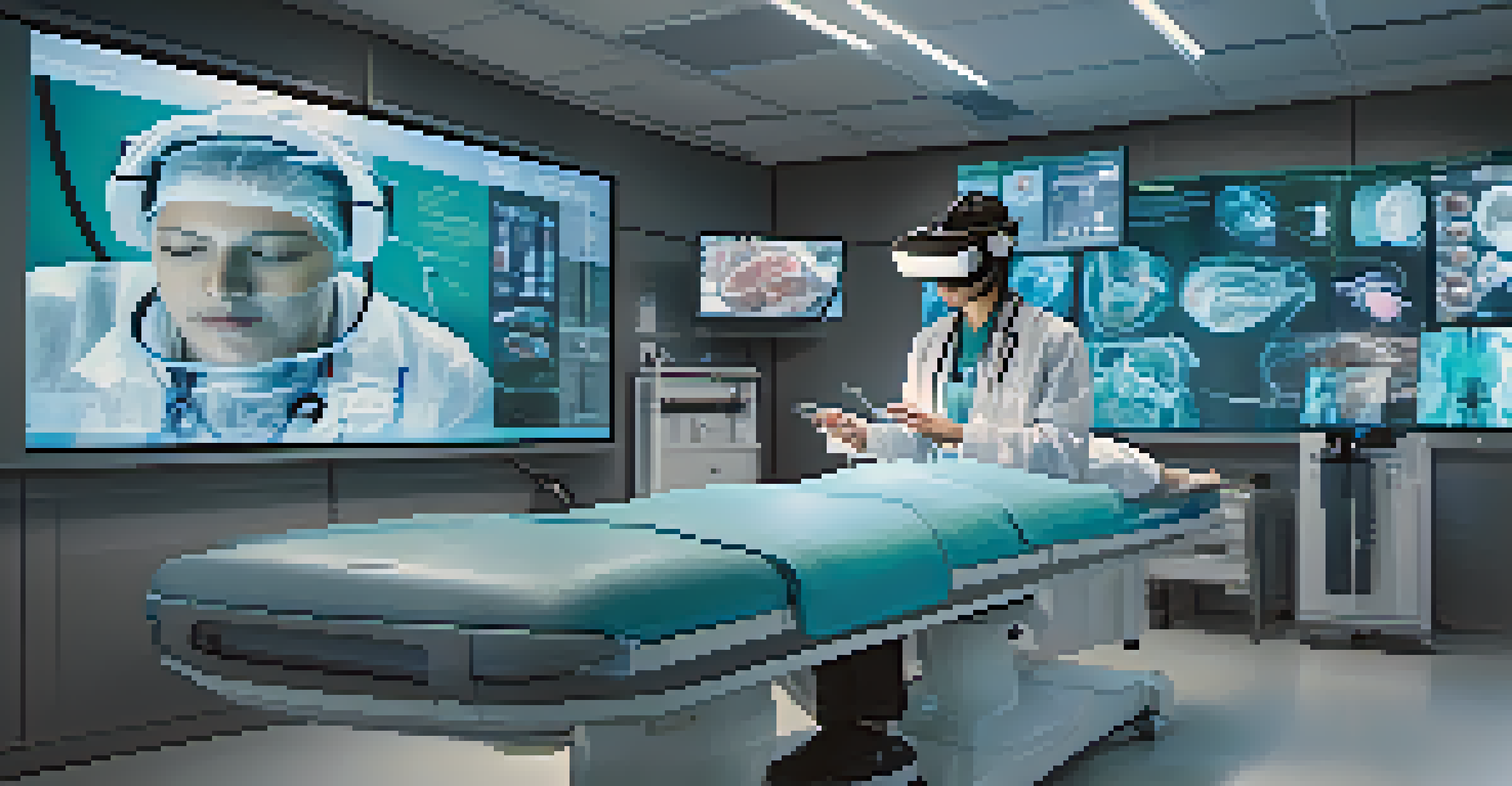Skills-Based Education: Preparing Students for Real-World Success

Understanding Skills-Based Education and Its Importance
Skills-based education focuses on teaching practical skills that students need in real-world situations. Unlike traditional education, which often emphasizes rote memorization, this approach prioritizes hands-on learning and critical thinking. By integrating real-life scenarios into the curriculum, students can better relate what they learn to their future careers.
Education is not the filling of a pail, but the lighting of a fire.
This education model is particularly important in today's fast-paced job market, where employers are increasingly looking for candidates with specific skills rather than just academic credentials. Skills such as communication, problem-solving, and teamwork are often more valuable than theoretical knowledge alone. As a result, students who engage in skills-based education are better prepared to meet the demands of their chosen fields.
Moreover, skills-based education fosters a sense of confidence in learners. When students practice skills in practical settings, they not only gain knowledge but also develop the self-assurance to apply what they've learned. This blend of skill and confidence not only enhances employability but also promotes lifelong learning.
The Role of Hands-On Learning in Skills Development
Hands-on learning is at the heart of skills-based education, allowing students to engage directly with the material. This can take many forms, such as internships, simulations, and project-based assignments, each providing opportunities for students to apply their knowledge in real situations. For instance, a student studying engineering might work on a team project to design a bridge, applying physics concepts in a tangible way.

Such experiences not only reinforce theoretical knowledge but also help students develop soft skills like collaboration and adaptability. In team settings, students learn to communicate effectively, negotiate differences, and solve problems together. These interpersonal skills are crucial for success in any workplace, making hands-on learning an essential component of modern education.
Real-World Skills Matter
Skills-based education prioritizes practical skills over traditional memorization, preparing students for the demands of today's job market.
Additionally, hands-on learning often sparks passion and curiosity. When students see the direct impact of their work, they become more invested in their education. This engagement can lead to deeper understanding and retention of concepts, preparing students for both academic and professional success.
Integrating Technology into Skills-Based Education
Technology plays a significant role in enhancing skills-based education, providing tools and platforms that facilitate active learning. From online simulations to coding boot camps, technology enables students to explore complex concepts in engaging ways. For example, using virtual reality (VR) in medical training allows future doctors to practice surgeries in a risk-free environment.
The future belongs to those who learn more skills and combine them in creative ways.
Moreover, technology allows for personalized learning experiences, catering to individual student needs and learning styles. Adaptive learning platforms can assess a student's strengths and weaknesses, offering tailored resources to help them improve. This customized approach ensures that all students can develop the skills they need at their own pace.
Additionally, technology fosters collaboration beyond the classroom. Students can connect with peers and industry professionals worldwide, sharing ideas and gaining diverse perspectives. This global networking not only enriches the learning experience but also prepares students for the interconnected world they will enter after graduation.
The Benefits of Project-Based Learning
Project-based learning (PBL) is a dynamic classroom approach that encourages students to explore real-world problems and challenges. By working on projects, students develop critical thinking, creativity, and practical skills, all while collaborating with their peers. For instance, a project focused on sustainability might involve researching local environmental issues and proposing solutions, allowing students to make a tangible impact.
PBL also promotes deeper engagement with the subject matter. Students are more likely to retain information when they see its relevance to real-life situations. This connection not only enhances learning outcomes but also ignites a passion for the subject, motivating students to pursue further knowledge and skills.
Hands-On Learning Enhances Engagement
Engaging in hands-on learning experiences helps students apply their knowledge effectively while developing essential soft skills.
Furthermore, project-based learning prepares students for the workforce by simulating real job environments. Students learn to manage time effectively, meet deadlines, and deliver high-quality work—all essential skills in any career. This hands-on experience equips them with the confidence and competence needed to succeed in their future professions.
Preparing Students for Diverse Career Paths
One of the standout features of skills-based education is its ability to prepare students for a wide range of career paths. Unlike traditional education, which often funnels students into specific fields, skills-based education emphasizes transferable skills applicable across various industries. This flexibility is crucial in a world where career trajectories can change quickly.
For example, a student skilled in data analysis can find opportunities in marketing, finance, healthcare, or even education. By equipping students with versatile skills like communication, critical thinking, and adaptability, they become more resilient in the face of changing job markets. This adaptability is what employers increasingly seek in candidates.
Additionally, skills-based education encourages students to explore different interests and passions. With a focus on skill development rather than narrowly defined career paths, students can experiment with various fields before making a commitment. This exploration not only leads to more informed career choices but also fosters a sense of fulfillment in their professional lives.
Building Essential Soft Skills for the Workplace
While technical skills are vital, soft skills are equally important in the workplace. Skills-based education places significant emphasis on developing these interpersonal attributes, such as teamwork, empathy, and communication. For instance, group projects require students to collaborate effectively, allowing them to hone their ability to work with diverse teams.
Employers often report that soft skills can be just as important as technical prowess. A candidate who can communicate ideas clearly and work well with others is more likely to succeed in a team-oriented environment. Skills-based education prepares students to navigate these dynamics, ensuring they are well-rounded and effective professionals.
Adaptability for Diverse Careers
This approach equips students with transferable skills that make them resilient and adaptable in an ever-changing workforce.
Moreover, the focus on soft skill development fosters emotional intelligence, which is crucial in today’s workplace. Understanding and managing emotions, both in oneself and others, leads to better relationships and a more positive work environment. This deeper emotional awareness is a key benefit of skills-based education, setting students up for long-term success.
The Future of Skills-Based Education
As the job market continues to evolve, the future of education will likely lean more toward skills-based approaches. With rapid advancements in technology and shifting workforce demands, educational institutions are recognizing the need to adapt their curricula. Skills-based education prepares students not just for their first job, but for a lifetime of career changes and challenges.
Moreover, the rise of online learning platforms and alternative education models is making skills-based education more accessible than ever. Students can now learn at their own pace, gaining valuable skills that align with their career aspirations. This democratization of education fosters a culture of continuous learning, crucial in a world where upskilling is necessary.

Ultimately, the shift toward skills-based education reflects a broader understanding of what it means to be successful in the modern world. By prioritizing practical skills and real-world applications, we are equipping the next generation to thrive in diverse and dynamic environments. This approach not only benefits students but also contributes to a more skilled and adaptable workforce.